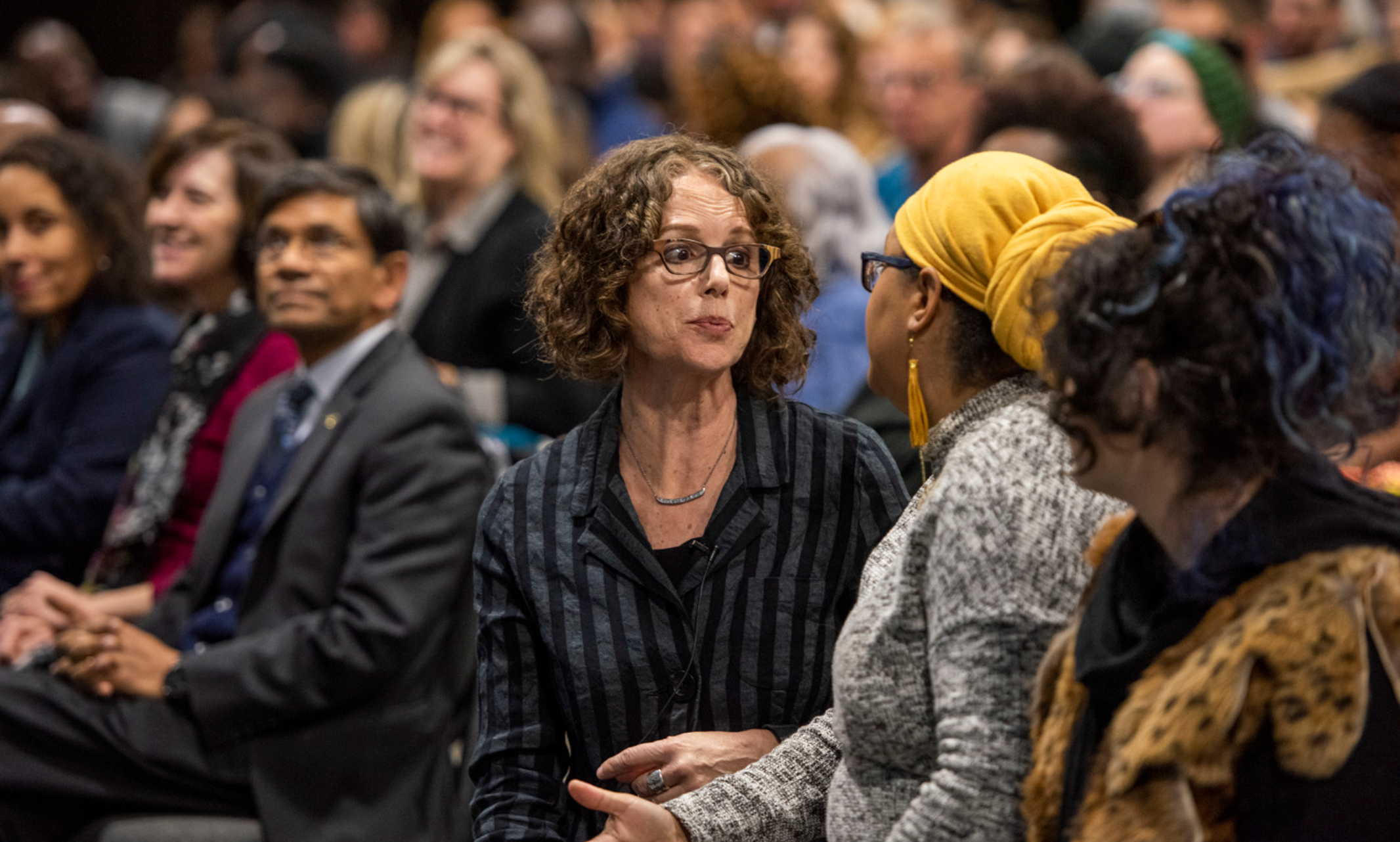Author and scholar Robin DiAngelo, Ph.D., examined the unconscious and unintentional forms of racism at UMKC Diversity and Inclusion’s 13th annual Social Justice Book Lecture.
DiAngelo is an associate professor of education at the University of Washington, and has been an educator and trainer on issues of social justice for over 20 years. Her book, White Fragility: Why It’s So Hard For White People To Talk About Racism, was released in June of 2018 and debuted on the New York Times Bestseller List.
At the Social Justice Book Lecture, DiAngelo explained to a capacity audience that many white people simply do not understand the true nature of racism. They think of racism as deliberately offensive acts committed by people with clearly hurtful intent. Since they do not commit or condone such behavior, they believe they are not racist.
What they miss, DiAngelo said, is that they live in, and benefit greatly from, a system that provides enormous advantages to white people from cradle to grave, in areas ranging from education to careers to health care to justice. Those advantages confer on white people a responsibility to educate themselves on the racist nature of society and its impact, and to approach that responsibility from a position of humility.
“Niceness is not anti-racism.”
Numerous scientific studies over many years have demonstrated that all people carry unconscious biases, DiAngelo said; the difference for white people is that their biases are supported by legal authority and powerful institutions.
Defining racism as intentional individual actions, she said, actually helps perpetuate the systemic racism of society by diverting attention away from it.
“The white experience is deeply separate and unequal,” she said. And while white progressives often attribute racist actions and intent to conservatives, “white progressives produce the most daily toxicity for people of color.”
“We are the ones who send our co-workers home every evening with stress, wrestling over whether they should address the unconscious indignities they endure from us.”
DiAngelo’s closing thought: “Niceness is not anti-racism.”
“Focusing on intent allows us to avoid taking responsibility for impact.”
About the Social Justice Book and Lecture Series
The UMKC Division of Diversity and Inclusion’s Social Justice Book and Lecture Series brings to campus thought leaders from across the country and various fields to explore issues of social justice with our students, faculty and staff. The objectives of the series are to:
- Foster a sense of community on our campus through shared literature and relevant dialogue.
- Prompt participants to think critically about the historical context of social justice issues while focusing on current social justice challenges and the interdisciplinary thought and leadership skills necessary for solving such challenges.
- Provide a platform for further reflection, dialogue and action within our campus and greater communities through related coursework, gatherings and exposure to local, regional and national social justice projects and initiatives.

